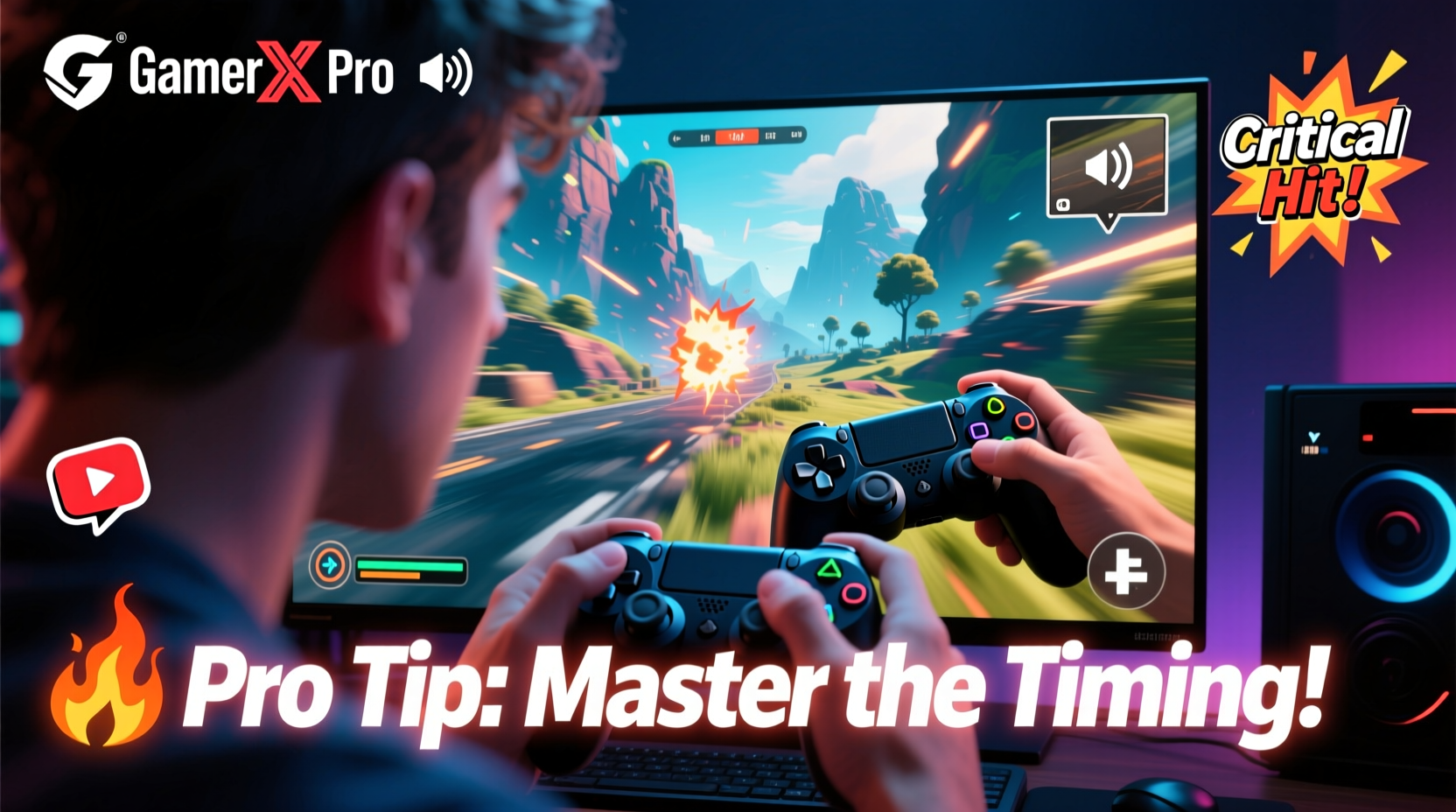In a saturated digital landscape where millions of gaming videos are uploaded every day, standing out requires more than just pressing record during a gameplay session. Success comes from intentionality—crafting content that entertains, informs, and connects. Whether you're playing indie titles or dominating the latest AAA release, your video’s value lies not just in what you play, but how you present it. This guide breaks down the exact steps top creators use to build loyal audiences through compelling, high-quality gaming content.
1. Define Your Niche and Target Audience

The first step to differentiation is clarity. Ask yourself: Who am I making videos for? A broad \"gamers\" audience won’t help you create focused content. Instead, narrow your focus. Are you targeting competitive Valorant players looking for advanced tactics? Or casual fans who enjoy humorous commentary while exploring open-world games?
Identifying your niche allows you to tailor your tone, pacing, and editing style. For example, a walkthrough series for beginners should be clear and educational, while a speedrun compilation thrives on fast cuts and high energy.
Examples of Effective Niches
- Beginner-friendly tutorials for new players
- Deep dives into game lore and Easter eggs
- Comedic skits based on in-game glitches
- Challenge runs (e.g., “Beating Elden Ring with a controller on keyboard settings”)
- Comparative reviews: “Game vs. Movie Adaptation”
2. Plan and Script Your Content Strategically
Spontaneity has its place, but structure drives retention. Before recording, outline your video’s arc. Even if you don’t write a full script, having bullet points ensures you cover key moments without rambling.
Break your video into segments: intro, gameplay, commentary, transitions, and outro. The most engaging videos follow a narrative—whether it’s overcoming a difficult boss, uncovering a mystery, or completing a challenge under constraints.
“Viewers don’t remember every jump or kill—they remember the story behind them.” — Jordan Lee, Video Game Content Strategist
Mini Case Study: From Random Clips to Channel Growth
Mark, a part-time creator, initially posted raw clips of his Minecraft builds. His views plateaued at 200 per video. After analyzing top-performing architecture channels, he began scripting short narratives around each build: “How I Designed a Medieval Castle Using Only Vanilla Blocks.” He added voiceover explaining design choices and historical inspiration. Within two months, average views jumped to over 15,000, with several videos surpassing 100K.
3. Master Technical Quality Without Overcomplicating
High production value doesn’t require expensive gear. It means delivering clean audio, stable footage, and smooth edits. Viewers will forgive lower resolution before they tolerate muffled commentary or chaotic cuts.
Essential Technical Checklist
- Use a decent USB microphone (e.g., Blue Yeti, HyperX QuadCast)
- Capture gameplay with OBS Studio or built-in console tools
- Record in at least 1080p at 60fps
- Ensure lighting is consistent if filming face cam
- Use noise suppression filters in post (Audacity or Adobe Audition)
Do’s and Don’ts of Gaming Video Production
| Do | Avoid |
|---|---|
| Speak clearly and vary your tone | Mumbling or monotone delivery |
| Edit out long loading screens or idle moments | Leaving 5-minute unskippable waits |
| Add subtitles for accessibility | Assuming everyone watches with sound |
| Use subtle background music under voiceovers | Overpowering music that drowns speech |
| Keep intros under 15 seconds | Lengthy watermarks or repeated catchphrases |
4. Edit with Purpose: Pacing, Transitions, and Personality
Editing transforms raw gameplay into a story. Fast-paced games like shooters benefit from quick cuts and dynamic zooms, while puzzle or RPG content often needs slower pacing to let viewers absorb details.
Use jump cuts to remove pauses, add text overlays to highlight tips, and insert reaction clips to emphasize funny or surprising moments. Tools like DaVinci Resolve (free) or Adobe Premiere Pro offer professional-grade features without overwhelming complexity.
Personality matters. Let your humor, frustration, or excitement show. Authentic reactions build connection faster than polished perfection.
5. Optimize for Discovery and Retention
A great video fails if no one sees it. YouTube’s algorithm rewards watch time and engagement. That means your title, thumbnail, and first 30 seconds must hook attention immediately.
Use clear, curiosity-driven titles: “I Found a Secret Ending in Zelda No One Talked About” works better than “Zelda Gameplay #7.” Pair it with a custom thumbnail showing a mysterious scene, bold text, and your expressive reaction.
Structure your opening like this:
- Hook (0–5 sec): Pose a question or reveal a shocking moment.
- Context (5–15 sec): Briefly explain what’s happening.
- Promise (15–30 sec): Tell viewers what they’ll gain by watching.
“The first 15 seconds decide whether someone clicks away or stays for 10 minutes.” — Lena Torres, YouTube Algorithm Analyst
Step-by-Step Publishing Workflow
- Record: Capture gameplay and voice commentary simultaneously or separately.
- Organize: Label clips by scene (intro, boss fight, glitch moment).
- Edit: Trim dead space, enhance audio, add music and effects.
- Review: Watch the full edit for flow and technical issues.
- Export: Use MP4, H.264 codec, 1080p resolution.
- Upload: Add SEO-rich title, description with keywords, tags, and end screen.
- Promote: Share in relevant communities (Reddit, Discord) without spamming.
FAQ
How long should my gaming videos be?
It depends on content type. Tutorials and highlights perform well between 6–12 minutes. In-depth analyses or full playthrough episodes can go 15–25 minutes. Always prioritize completeness over arbitrary length.
Can I use copyrighted game music or cutscenes?
Fair use may protect some uses, but it's risky. Platforms like YouTube may mute or demonetize clips with copyrighted audio. When possible, replace music with royalty-free tracks from sources like Epidemic Sound or YouTube Audio Library.
How often should I post?
Consistency beats frequency. Posting one high-quality video per week builds more trust than three rushed ones. Start with a sustainable schedule and increase as you streamline your workflow.
Conclusion
Creating engaging gaming videos isn’t about having the best gear or playing the trendiest game—it’s about offering something unique through preparation, personality, and polish. Every element, from your script to your subtitle timing, contributes to whether viewers stay, share, or subscribe. The barrier to entry is low, but the path to impact requires deliberate effort. Now that you have the blueprint, the next move is yours. Pick a game, define your angle, and press record—not just to play, but to connect.









 浙公网安备
33010002000092号
浙公网安备
33010002000092号 浙B2-20120091-4
浙B2-20120091-4
Comments
No comments yet. Why don't you start the discussion?